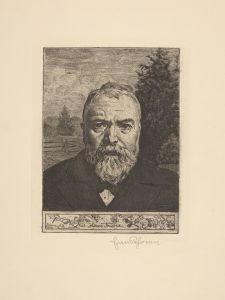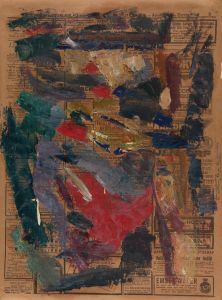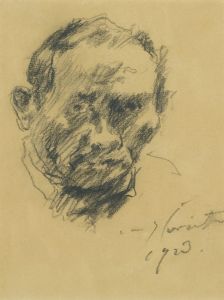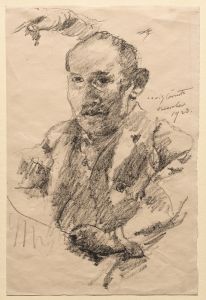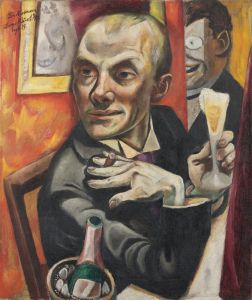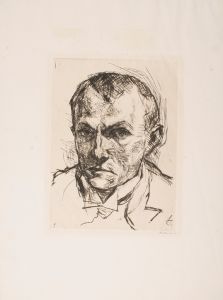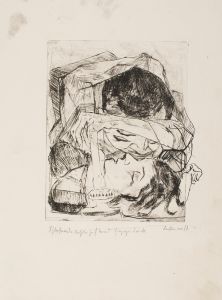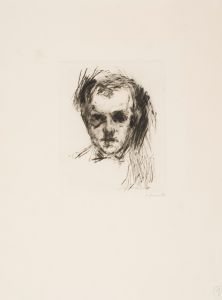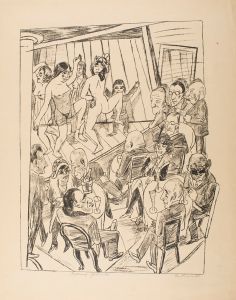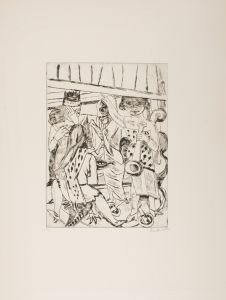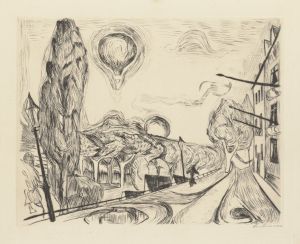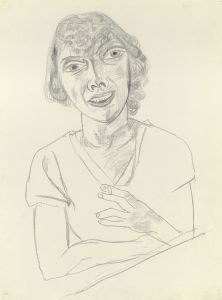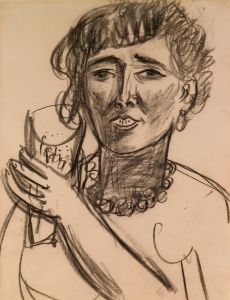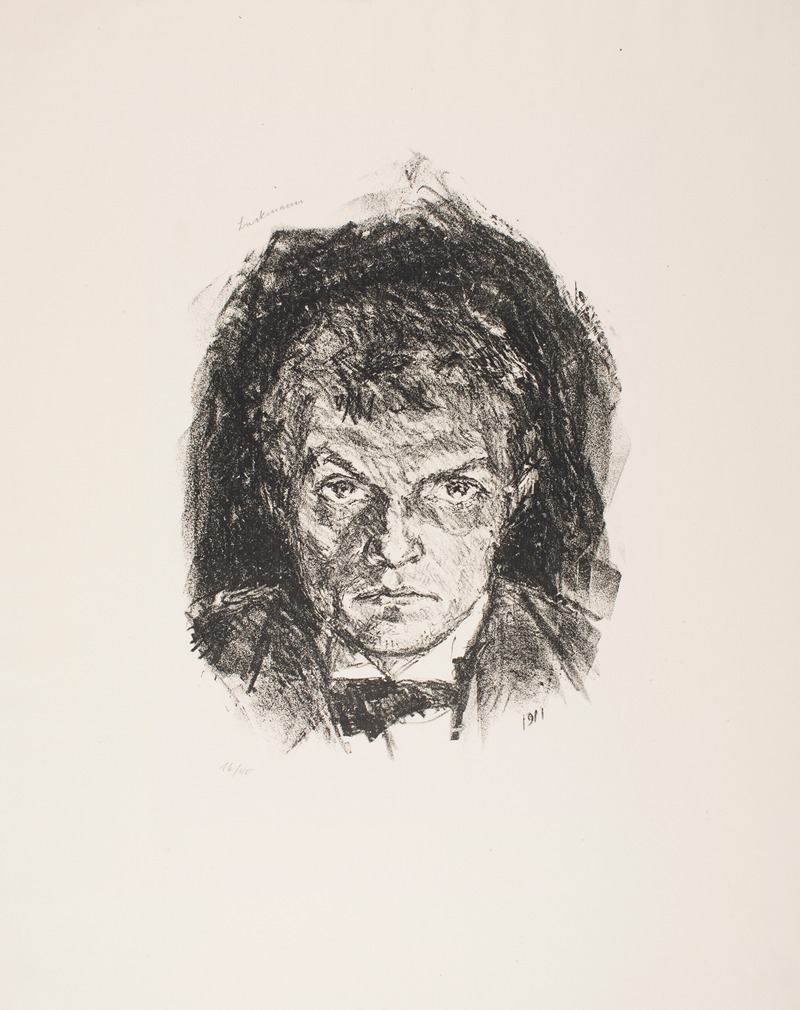
Self-Portrait
A hand-painted replica of Max Beckmann’s masterpiece Self-Portrait, meticulously crafted by professional artists to capture the true essence of the original. Each piece is created with museum-quality canvas and rare mineral pigments, carefully painted by experienced artists with delicate brushstrokes and rich, layered colors to perfectly recreate the texture of the original artwork. Unlike machine-printed reproductions, this hand-painted version brings the painting to life, infused with the artist’s emotions and skill in every stroke. Whether for personal collection or home decoration, it instantly elevates the artistic atmosphere of any space.
Max Beckmann's "Self-Portrait" is a significant work within the oeuvre of the German painter, who is renowned for his contributions to the Expressionist movement. Beckmann, born in 1884 in Leipzig, Germany, is celebrated for his intense and often introspective self-portraits, which provide insight into his personal and artistic evolution throughout his career.
The "Self-Portrait" by Max Beckmann, painted in 1923, is one of his most notable works. This painting is a striking example of Beckmann's mature style, characterized by bold lines, a rich color palette, and a profound psychological depth. The self-portrait reflects Beckmann's exploration of identity and his response to the tumultuous socio-political climate of post-World War I Germany.
In this self-portrait, Beckmann presents himself with a direct and penetrating gaze, engaging the viewer with an air of introspection and defiance. The composition is marked by its strong linearity and the use of dark, saturated colors, which are typical of Beckmann's work during this period. The artist's face is rendered with a sculptural quality, emphasizing his features and conveying a sense of solidity and presence.
Beckmann's self-portraits are often seen as a means of self-examination and reflection, and this work is no exception. The painting captures the artist at a pivotal moment in his life, as he grappled with the aftermath of the war and the shifting cultural landscape of the Weimar Republic. The intensity of the portrait suggests a man who is both confident in his artistic abilities and acutely aware of the uncertainties of his time.
The "Self-Portrait" is also notable for its departure from the more traditional, representational styles of portraiture. Beckmann's approach is distinctly modern, incorporating elements of abstraction and distortion to convey emotional and psychological depth. This technique aligns with the broader Expressionist movement, which sought to express subjective experiences and emotions rather than depict objective reality.
Throughout his career, Beckmann produced numerous self-portraits, each reflecting different aspects of his personality and artistic journey. This particular work stands out for its raw honesty and the way it encapsulates the spirit of an era marked by upheaval and change. It is a testament to Beckmann's skill as a painter and his ability to convey complex human emotions through his art.
Today, Max Beckmann's "Self-Portrait" is held in high regard and is part of several prestigious collections. It continues to be studied and admired for its artistic merit and its insight into the life and mind of one of the 20th century's most influential artists. Beckmann's legacy as a master of self-portraiture endures, and this painting remains a powerful example of his contribution to modern art.





